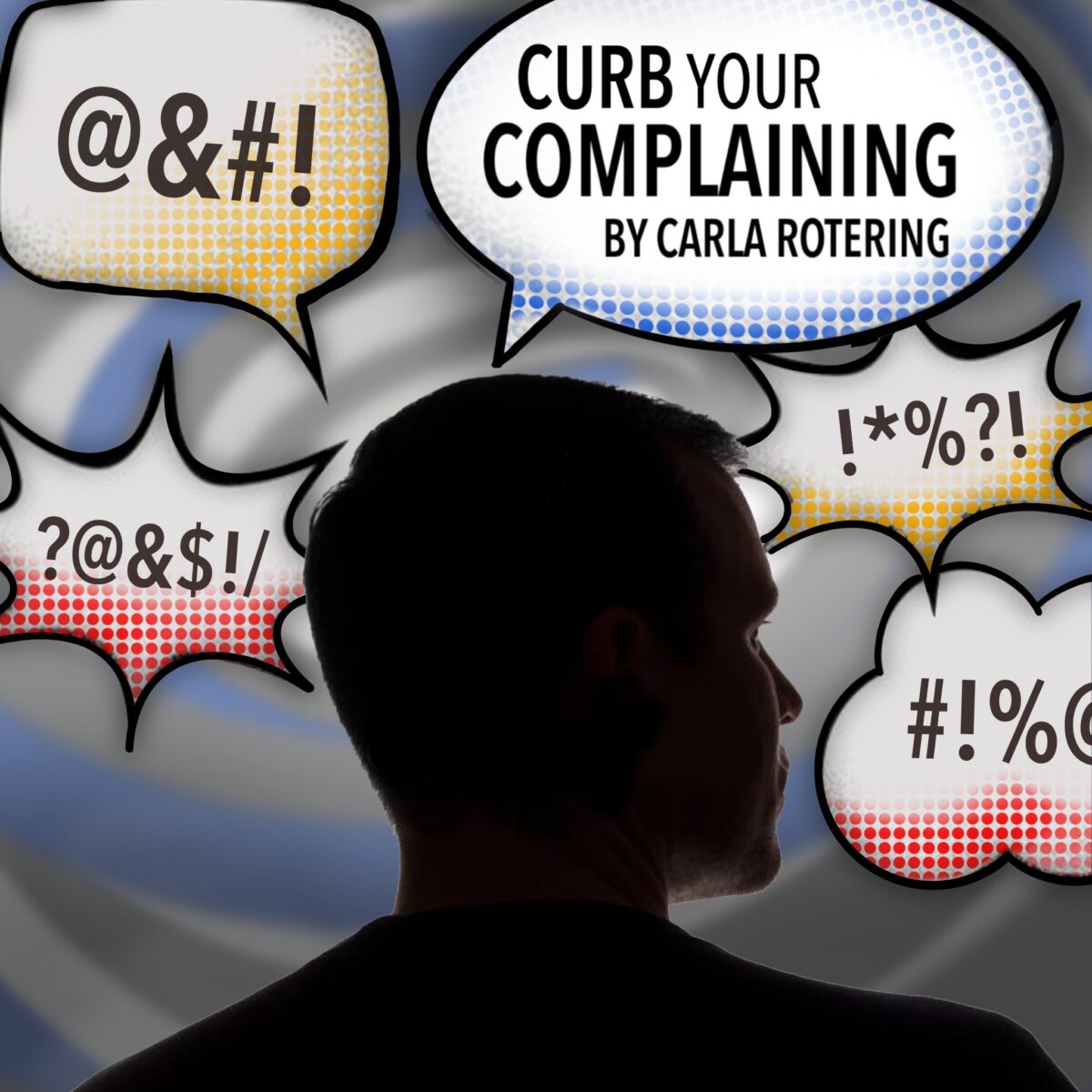Curb Your Complaining
by Dr. Carla Rotering
“The only thing complaining does is convince other people that you are not in control.”– Unknown
There’s an old saying that “misery loves company” – and over the last couple of years, things may feel pretty miserable to many if not most of us. It seems a natural extension to transfer what we experience into the act of complaining.
Complaining and connecting with those who share our disturbance not only provides some emotional release but it also creates a place of belonging. Who doesn’t want to spend time with people who “get” what we are talking about – who notice the same miserable things we do, push against the same miserable boundaries we do, and complain about the same miserable details that we do? We become misery buddies, an exclusive club of complainers, operating with the belief that we are bonding and validating one another through our shared complaints.
We are inherently social beings, and as humans we have the capacity for neuronal mirroring. Mirroring happens when mirror neurons in the premotor cortex area of your brain respond to an observed behavior or mood of another person as if YOU were actually engaged in that behavior or mood yourself! So rather than finding comfort and relief, as we unconsciously mimic moods and behaviors, we actually deepen our misery and ultimately habituate the practice of complaining. That habit of complaining doesn’t make anyone happy. And you don’t even have to be the complainer!! Studies show that 30 minutes of LISTENING to someone complain impacts our health and wellbeing just as much as BEING the complainer for that 30 minutes. The average person complains between 15 – 30 times a day, according to Will Bowen, author of “A Complaint-Free World”.
Have you ever heard the saying “Neurons that fire together wire together”? Neuroscience tells us that repetitive complaining, like any repetitive behavior, re-wires our brains so that the neurons branch out toward each other to create a more permanent bridge, making future complaining more likely. Over time, it becomes easier to be negative by defaulting to this now-established neural pathway than it is to be positive, which would require the creation of a new pathway – and that holds true even when what is happening around us changes for the better!
Mission.org explains this phenomenon perfectly:
“The more you complain about things like flakey friends or being asked to push up a project’s
deadline, the more neurons in your brain stitch themselves together to easily
facilitate this kind of information. Before you know it, complaining becomes so
easy for your brain to grasp, you start doing it without even consciously registering
the behavior.”
A Stanford University study using high resolution MRI’s found that complaining or listening to complaining can result in actual damage to our brains by shrinking the hippocampus. Equally concerning, chronic high cortisol levels, besides triggering our flight-or-fight response, are now thought to damage the hippocampus in the same way. The hippocampus is an area critical to memory formation, learning, emotional regulation and problem solving. It is also one of the primary areas of the brain destroyed in Alzheimer’s Disease.
Who wants that??? And what can we do to shift?
Here is a summary of tips offered by the Cleveland Clinic to interrupt the habit of complaint – whether you notice it in yourself or your peers, friends, family:
- Look at the big picture – will this really matter in 5 minutes/months/years? If the answer is “yes” see #5
- Ask yourself if this IS the issue? Is “this” (whatever it is) really pushing your buttons or is there something going on that is deeper, harder, more personal.
- Make it a game! Wear a bracelet or rubber band around your wrist – and every time you notice yourself complaining (even silently) shift it to the opposite wrist. The goal is to keep your rubber-band bracelet on the same wrist for longer and longer periods of time.
- Share legitimate concerns in the right time and place – not on social media, not in a public hallway or shared space.
- When something really matters, share your concern in a way that is seen as helpful rather than critical. Be a part of the solution!
- When you offer a valid complaint, start and end with a positive statement. When we start with negative words, no one can hear anything else we say. When we end with negative words, no one can remember what we said before. This sandwiches your concern between caring statements– and makes all the difference to others and to YOU!!
- Practice gratitude. If negativity has become a habit for you or those around you, noticing one small thing daily for which you are thankful can begin to forge a new, positive neural pathway!!
Our invitation to you is to experiment with a “no complaint day” – and see what happens to your energy, your mood, your level of contentment and satisfaction.
And if you like it, start building new neuronal bridges!!!
https://health.clevelandclinic.org/how-to-stop-complaining-7-secrets-to-being-happier/
https://news.stanford.edu/pr/96/960814shrnkgbrain.html
https://www.ncbi.nlm.nih.gov/pmc/articles/PMC6616250/
https://www.southernliving.com/news/complaining-changes-your-brain



